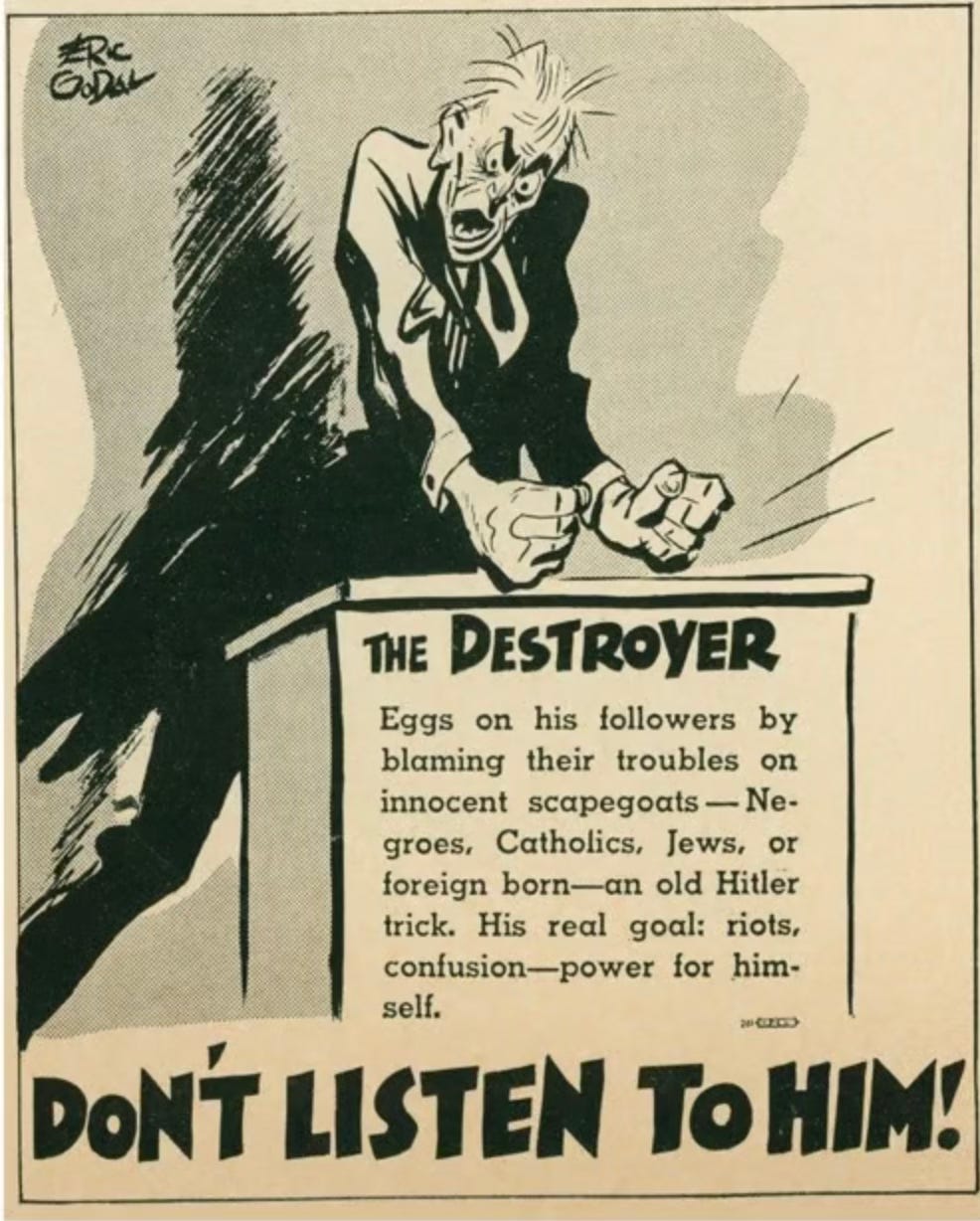'Men like him frighten me'
Father Twomey tries to dissuade a high-schooler from following 'a dangerous reactionary'

At some point between August 15 and August 20, 1949, while Father Louis J. Twomey, S.J., was at Fordham University to lecture at the touring Summer School of Catholic Action, the Southern Jesuit was approached by Joseph F. Tisch Jr., a fifteen-year-old boy who was eager to take political action against communism. Tisch, knowing of the Jesuit’s own concern to counter communism, sought to interest him in the organization behind the newsletter Common Sense. Founded by Conde McGinley in 1947, Common Sense was then well on its way to becoming one of the more extreme publications of its kind. It was so extreme, in fact, that, in 1954, the House Un-American Activities Committee would included it in a report on “Neo-Fascists and Hate Groups.”
Although Twomey tried to steer Tisch’s enthusiasm towards a more productive outlet, namely promoting Catholic social teaching, the teen was undeterred. Days after meeting the Jesuit, Tisch wrote urging him to reconsider his opposition to Common Sense.1
However, when Father Twomey returned to his office at the Institute of Industrial Relations (the labor school he founded at Loyola University New Orleans) after touring for months with the Summer School of Catholic Action, he had to make his way through a lengthy backlog of correspondence. Finally, on November 17, 1949, he dictated a two-page letter to Tisch, which I discovered while researching the Twomey Papers at Loyola University New Orleans Special Collections & Archives.
I am sharing the main substance of Twomey’s letter here today, because his concern to rescue a zealous Catholic teenager enthralled by extremist ideologies has relevance for our present moment, when Catholic youths are likewise being courted by extremists both left and right.
Father Twomey, after apologizing for his delay in responding, writes,
After reading several issues of Common Sense, I am still of the same opinion which, you may remember, I expressed to you in the corridor of one of the buildings on the Fordham campus. If I can judge the nature of the methods used in your organization by what appears in Common Sense, I can tell you frankly I am worried about this organization. Merwin K. Hart is one of the principal contributors to Common Sense, and, to my mind, Merwin K. Hart is a dangerous reactionary. I have read Hart’s stuff long before I saw it in Common Sense, and I know of no respectable Catholic authority that does not severely criticize Hart for his blind reactionary ideas. Hart preaches a brand of laissez-faire philosophy which has been roundly condemned in the papal social encyclicals. This philosophy expresses itself in American economic life by a plea for “rugged individualism” which is nothing more or less than the religious individualism of Luther applied to economies.
Keep reading with a 7-day free trial
Subscribe to Matters Twomey to keep reading this post and get 7 days of free access to the full post archives.




